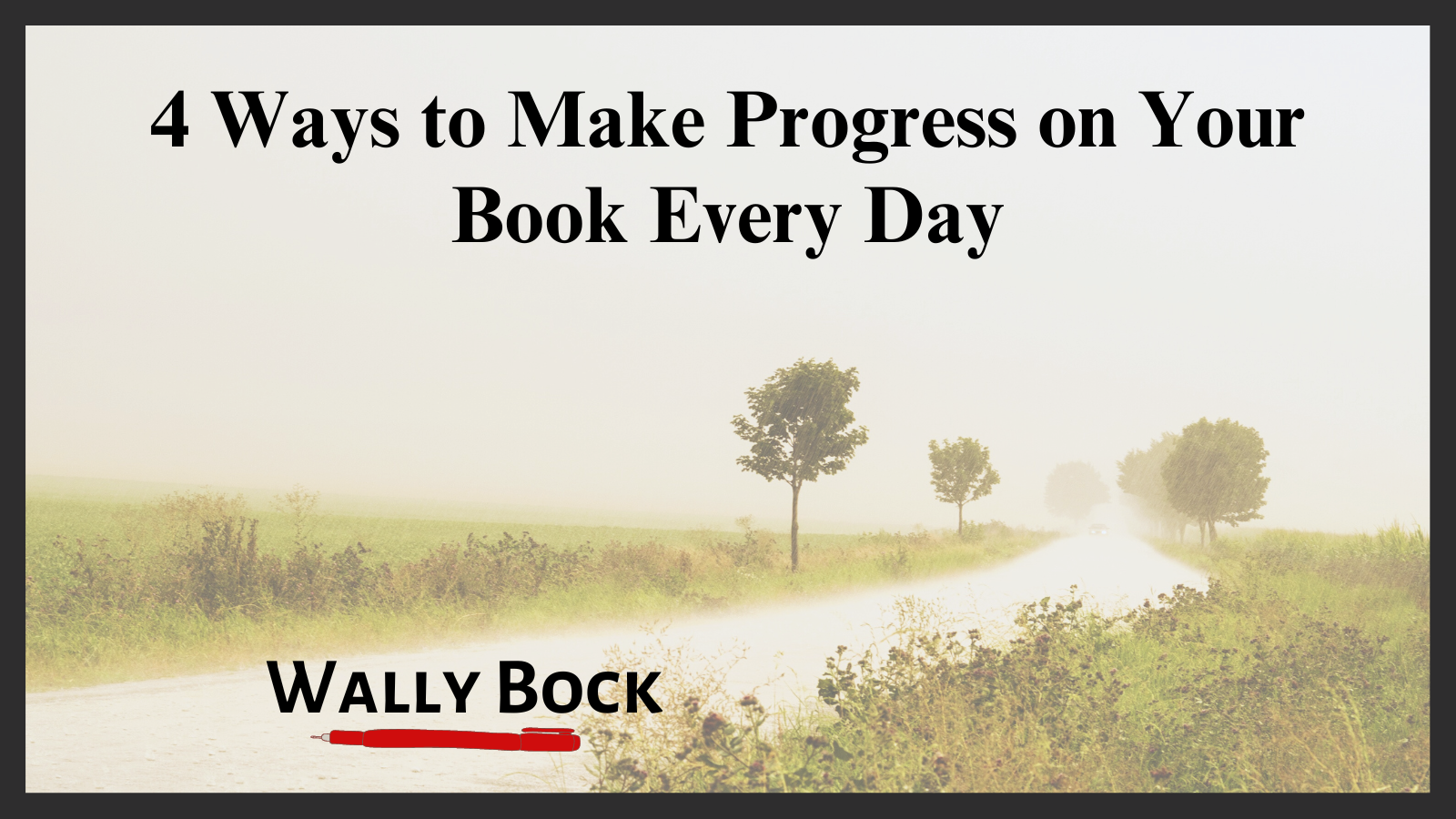Teresa Amabile and Steven Kramer studied the inner work life of 238 people by analyzing more than 12,000 daily work diary entries. That research resulted in what they call “The Progress Principle.” Here it is from their book with that name.
“Of all the positive events that influence inner work life, the single most powerful is progress in meaningful work.”
The progress principle is important to you if you’re writing a book. Making steady progress is how you maintain momentum during the months you labor to produce a book you’re proud of. The small winds of a little progress every day will help you keep going when it seems like writing your book is a slog that may never end.
You’re unique, and so is your situation. Not only that, every day is different. But we can identify four times when you can make progress on your book. Let’s start with time off.
Time Off and Catching Ideas
Yep, you read that right. Time off should be part of your work plan. You’ll be more productive if you take breaks during the day and if you take whole days away from the project to do something completely different.
But are you really making progress when you do that? Well, you may not be working consciously, but your brain and its Default Mode Network are on the job. While you’re paying attention to other things or just lollygagging about, your brain is working on your project.
From time to time, your Default Mode Network will throw an idea or two at you. That’s good news, but only if you capture that idea. Don’t wait! You won’t remember that idea even a few moments later. Capture the idea in a pocket notebook, on index cards, or a recording device like a small digital recorder or your phone. Capturing good ideas will give you plenty to work with later.
Writing Time
When you’re writing a book, you want large blocks of uninterrupted time to do the actual writing. How large is large? Most folks need at least an hour to an hour and a half to do meaningful writing work.
Schedule your blocks of writing time when you schedule your week. Then, hold them sacred.
Pick a writing rhythm that works for you. Some folks write every day, some do it once a week. There are all kinds of schedules that work. I suggest that you schedule writing time for at least one day a week.
Writing time is just for writing. Raymond Chandler shared his rule for writing time in a letter to journalist Alex Barris in 1949. After stating the need for designated writing time, Chandler said this.
“He doesn’t have to write, and if he doesn’t feel like it, he shouldn’t try. He can look out of the window or stand on his head or writhe on the floor. But he is not to do any other positive thing, not read, write letters, glance at magazines, or write checks. Write or nothing.”
Well, if it’s “write or nothing,” that ignores a whole bunch of the work of creating a book. After all, only writing is writing. Research, outlining, and planning are not writing. They need their own time.
Preparation Time
One reason you may not want to write every day is that you need to prepare for a productive writing session. So, schedule blocks of time for preparation, including outlining and research. You may need to take a long walk to noodle over a writing problem and how to solve it. You’ll still need at least an hour to an hour and a half to do good, deep work.
So far, so good. But remember the saying, “We plan. God laughs.”
Touch Time
We can’t reliably predict the future, but we can be sure of one thing. Life will happen. You will be surprised, sometimes pleasantly, when things don’t go exactly as planned. Sometimes, that will knock you out of planned writing or preparation time. Then, it’s time for what I call “touch time.”
Even when you can’t use an hour or so to write or prepare to write, you can still make progress on your book. Take 10 or 15 minutes of “touch time.” Write down the ideas you’ve had. Review your materials. Make a few notes about planning or writing. Touch your project every day, no matter what.
Take some touch time on days when you haven’t scheduled any writing or preparation work. You won’t be writing or researching, but you will be making progress.
So, what have you done today? How have you made progress?
